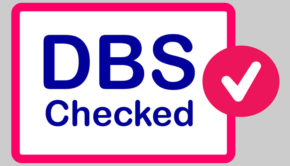What do Background Checks Know About You?
When someone performs a background check on someone else, they can get information about their past and current places of employment, financial standing, whether they have a criminal record, professional and academic qualifications, and social media profiles. The specific information, which is gleaned depends on the type of check. The organization requesting the check must inform you of it and ask for your consent in advance. Background screening resources like Unmask can provide many additional details about the screening process.
Employment Background Checks
Employers use these checks as a way to identify possible risks to security or safety and to judge a job applicant’s fitness and character. They also use them to investigate prospective state employees because security clearance needs to be given in these cases.
In addition to an employment background check, hiring managers us social media to screen applicants. They might check a candidate’s LinkedIn, Twitter, and Facebook accounts to see how they act outside work. However, companies cannot take anything they find about the candidate’s political views, religion, sexual orientation, or other personal details when making hiring decisions.
Reference Checks
When employers conduct reference checks, they talk to previous employers or other people who know the candidate, such as their former coworkers, teachers, family members, or neighbors. Conclusions based on hearsay information can expose organizations to lawsuits.
Criminal Checks
Jobs in security and/or those involving the use of a firearm will require a criminal check under the Brady Bill. Explosives, concealed weapons permits, and restricted weapons such as machine guns require criminal background checks as well. Those applying for jobs at airports, ports of entry, trucking, or others that involve special security concerns must undergo this type of screening.
People who fail criminal checks are prohibited from working in occupations involving children, the disabled, or the elderly. Different criminal record searches are available, some more reliable and accurate than others. Criminal history information can be obtained through a background check site or directly from the respective state.
Financial History
Candidates for positions that involve handling a lot of money or sensitive financial records must undergo credit checks. Some companies will only look at one’s credit score. Others ask for a more detailed credit history. Before obtaining a credit report, the company must get the person’s consent. A pre-employment credit screening will not affect one’s overall credit score.
Verification of Identity and Address
This is the most basic kind of check. An SSN trace is carried out to confirm the person is who they say. A fake number might indicate concealment of history, identity theft, or a faulty citizenship status claim. This trace will also reveal where a prospective or current employee has lived in the past. Immigration raids initiated by the Immigration and Customs Enforcement division of the Department of Homeland Security and other entities have forced companies to make legal employment status a part of their set of background checks.
Some states require employers to store Form I-9s on all employees. Others mandate them to use the government’s e-verify program to research employment status based on one’s SSN. A lot of outsourcing companies offer to automate and store I-9 forms on employees with the increasing frequency of legal employment issues.
Legislative Framework of Background Checks
The FACT (Fair and Accurate Credit Transactions) Act governs secure consumer credit data disposal. FACT amended the FCRA. More information about it is available under “Selected Provisions” of the 2003 Fair and Accurate Credit Transactions Act. EEO (equal employment opportunity) laws exist to make sure background checks do not violate human rights. Employers should make sure that their screening processes are compliant. Relying on these checks alone can lead to discrimination.
Under the IRCA (Immigration Reform and Control Act) of 1986, companies that have four or more staff members are not allowed to discriminate based on citizenship or national origin. This act is what the process of Form I-9 employment verification is based on. This verification may transpire after someone is hired, but if citizenship or national origin is discovered before, it cannot be held against the person.
Image source
Image by Karolina Grabowska from Pixabay
















